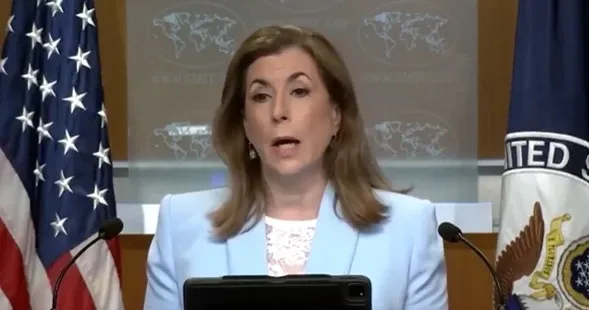What Are the Travel Risks for Americans to Iran?

Synopsis
Key Takeaways
- US citizens should avoid all travel to Iran.
- Wrongful arrests and detentions are common.
- Dual nationals are particularly at risk.
- Consult travel.state.gov for travel advisories.
- New resources are available to inform Americans on this issue.
Washington, July 11 (NationPress) The US Department of State has initiated a new awareness campaign aimed at informing Americans, particularly Iranian Americans, about the persistent and serious risks associated with traveling to Iran.
“US citizens are strongly advised to AVOID travel to Iran for any purpose. US nationals within Iran, including those with dual US-Iranian citizenship, have faced kidnapping and wrongful detention without prior notice or valid evidence of any wrongdoing. Many individuals have been imprisoned for years under false allegations, subjected to psychological torment, and have even received death sentences. Merely possessing a US passport or having ties to the United States can lead Iranian authorities to detain individuals,” stated the US Department of State's Consular Affairs on X.
During a press briefing, US State Department spokesperson Tammy Bruce emphasized that the Iranian government does not acknowledge dual nationality and frequently denies consular assistance to detained US citizens. She noted that even though the bombing has ceased, this does not imply that traveling to Iran is safe.
“We are launching a dedicated website to inform Americans about the dangers of traveling to Iran. You can access this site at state.gov/do-not-travel-to-Iran. The message is unequivocal, presented in several languages. Our travel advisories are also available and remain effective,” Bruce added.
“We cannot emphasize enough – as I have reiterated from this podium – do not travel to Iran, especially those with dual citizenship and Iranian heritage. It is unsafe for anyone to visit Iran. Furthermore, this campaign complements, but does not replace, existing travel advisories at travel.state.gov. Our message is clear,” she concluded.
This warning comes amidst heightened tensions between the US and Iran following 12 days of escalating conflict between Iran and Israel that began on June 13, which included US strikes on Iranian nuclear sites.









